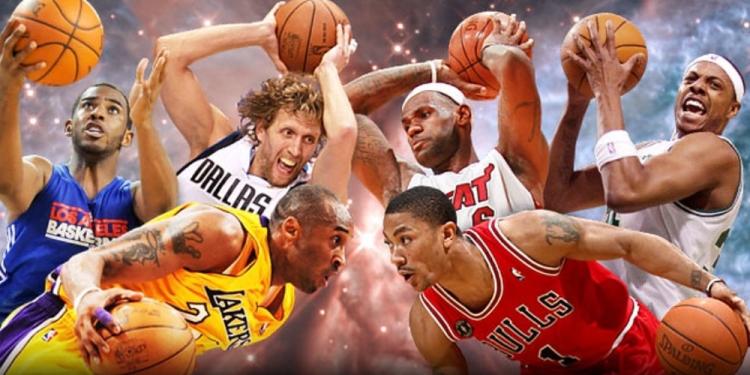How Zig-Zag Theory In Sports Betting Can Help You Win More
Posted: February 28, 2024
Updated: February 28, 2024
Zig-zag theory in sports betting is a strategy where you wager on the team that lost the previous game in a playoff series, assuming they'll be motivated to bounce back and perform better. It relies on the belief that teams often alternate wins and losses in high-stakes situations.

Among the many theories circulating among sports bettors, only a handful prove consistently effective. While some suggest strict bankroll management or endorse systems like Martingale and Labouchere, not all hold water. However, one theory that stands out for its success is the Zig-Zag theory in sports betting which is particularly common in NBA matchups.
What Is The Zig-Zag Theory?
Zig-Zag theory is credited to the astute handicapper Tony Salinas. It focuses on the results of the most important games in NBA and NHL seasons. Salinas said that preceding game outcomes significantly influence subsequent matches. This is a factor that’s often overlooked by bookmakers who tend to emphasize less impactful variables such as home-court advantage.
According to Zig-Zag theory, teams are more inclined to bounce back and secure a victory after a defeat. Salinas’s theory draws from seeing that teams rarely mount a comeback after falling behind 3-0 in a best-of-seven series. Notably, teams trailing 2-0 heading into the third game clinched victory 60% of the time, even when considered the underdog or in a slump.
Does The Zig-Zag Theory Really Work?
The crux of Zig-Zag theory lies in the tendency for bookmakers to underestimate teams in such positions. Having suffered a number of consecutive defeats, these teams are often undervalued. In this manner, they present favorable odds for sharp sports bettors. While mainly associated with the NBA and NHL, Zig-Zag theory can be used in various sports, albeit with varying degrees of applicability.

Despite lacking any real-world statistical validation, the frequency of teams rallying from a 2-0 deficit underscores the theory’s significance in sports betting analysis. This makes it something to consider if you’re taking a punt with Bet365 Sportsbook.
How The Zig-Zag Theory Works
At its core, Zig-Zag theory says that following a team’s loss in one match, it’s expected to cover the spread in the next game. While rebounding from defeats poses a challenge for teams, it constitutes an essential element of this theory. However, the strategy goes beyond just the surface level. It also incorporates considerations of the teams’ home and away status, as well as their recent performance. Notably, Zig-Zag theory finds optimal application in sports such as the NBA, NFL, and NHL, where spread betting prevails.
Application In NBA
Zig-Zag theory finds particular success in the NBA, where it revolves around supporting the losing team to secure victory in the subsequent playoff matchup. This strategy offers several avenues for putting it into practice. Let’s look at the first game of a playoff series where the home team typically holds an advantage. However, according to the theory, if the home team suffers defeat, it’s then statistically favored to triumph in Game 2. In instances where a team experiences consecutive losses at the onset of a playoff series, Zig-Zag Theory suggests a high likelihood of victory in Game 3, with a success rate of approximately 60%. This surge in performance can be put down to the team’s heightened motivation to avoid elimination.
A Zig-Zag Theory Example From The NBA
Let’s illustrate this with an example of this theory in action during the 2022 NBA finals between the Golden State Warriors and the Boston Celtics. After the Celtics claimed victory in Game 1, sticking to Zig-Zag theory, the Warriors were deemed to have a 70% chance of winning Game 2. A prediction they validated. Despite the Celtics regaining momentum and securing victory in Game 3, the Warriors staged a comeback in Game 4 to level the series before ultimately clinching the championship.
Points To Think About Regarding This Strategy
It’s essential to keep in mind that while Zig-Zag theory can offer valuable insights, it’s certainly not infallible. Despite its often accurate predictions, many instances have defied its projections. Hence, punters employing Zig-Zag theory should look at their analysis with the idea that there are plenty of other factors influencing game results. These include things like the home-court advantage, team dynamics, recent performance, head-to-head records, player injuries, and suspensions, among many others.
Evolution Of NBA Zig-Zag Theory
In recent years, the efficacy of Zig-Zag Theory in the NBA has diminished compared to its heyday in the 1990s. Several factors have contributed to this shift—for instance, the emergence of Super Teams.

Unlike the 1990s, the NBA landscape now features the prevalence of super teams, significantly altering the dynamics of playoff series. These powerhouse teams often dominate series, reducing the effectiveness of Zig-Zag theory.
Contributing Factors To The Theory’s Demise
- Evolution in Team Strategies: Teams have evolved their playing styles and tactics, impacting the predictability of outcomes.
- Availability of Analytics: The proliferation of advanced metrics and analytics has provided teams with deeper insights, influencing their game plans and outcomes.
- Changes in Playoff Formats: Alterations in playoff formats have introduced variability, affecting the traditional patterns on which Zig-Zag theory relies.
- Variability in Home-Court Advantage: Shifts in the importance and impact of home-court advantage have altered the dynamics of playoff matchups, impacting the applicability of Zig-Zag Theory.
NHL Zig-Zag Theory
The NHL stands as another important arena where the Zig-Zag theory can prove its effectiveness. In the playoff series, teams facing consecutive losses often rally to avoid being swept aside by their opponents. Much akin to its application in the NBA, this theory finds relevance in backing a losing team to secure victory in Game 2 or Game 3 following two successive defeats at the beginning of a series.
A case in point illustrating the Zig-Zag theory in action occurred during the 2020 Stanley Cup final between the Tampa Bay Lightning and the Dallas Stars. After the Stars claimed victory in Game 1, the Lightning responded with a closely contested victory in Game 2, thereby leveling the series and presenting an opportune scenario for Zig-Zag bettors. Subsequently, the Lightning surged ahead, securing a 3-1 lead in Game 4, only for the Stars to mount a partial comeback in Game 5, thereby extending the series and offering another opening for Zig-Zag strategists. Those betting with top sportsbooks in the US like Bet365 Sportsbook were delighted to see that ultimately, the Lightning clinched the series with a decisive 4-2 victory in Game 6.
The Profitability Of This Betting Strategy
Zig-Zag theory shows teams trailing by two games in a series tend to win the third game nearly 60% of the time. Motivated by the prospect of averting a series loss, teams often increase their efforts to grab victory in the third game. However, it’s essential to recognize that, notwithstanding this statistical trend, approximately 40% or more of teams in a Zig-Zag situation may still succumb to defeat. In the end, the viability of the Zig-Zag theory hinges on several factors. These include the specific teams involved in the matchup. As well as considerations such as injuries, suspensions, and other important elements. Here at Gamingzion.com we suggest you do some thorough research to identify the most lucrative betting opportunities when employing this theory.
Statistics On Zig-Zag Theory
According to online gambling news in the US, although no official statistical research exists on the Zig-Zag theory, casual observations reveal some pretty compelling trends. For instance, scenarios where the home team secures victory in Game 1 transpires in over 53% of instances, with approximately 65% of these teams ultimately clinching the series. Moreover, when applied to underdogs winning the third game after consecutive losses in the first two, this theory has a success rate of nearly 60%. While these statistics lack official endorsement, analysis of recent seasons tends to corroborate these findings.
Is Zig-Zag Theory Really Worth It?
Indeed, while the Zig-Zag theory holds some merit, we suggest that careful implementation is essential to guarding your sports betting bankroll. Prior to diving into this theory in earnest, we advise you to consult the betting tips and strategies recommended by experts. Additionally, using VIP sportsbooks can help to increase the profitability of this approach, as they tend to offer more favorable odds. Thus maximizing the potential profitability of the theory.
Click here to try the best odds at bet365 Sportsbook











